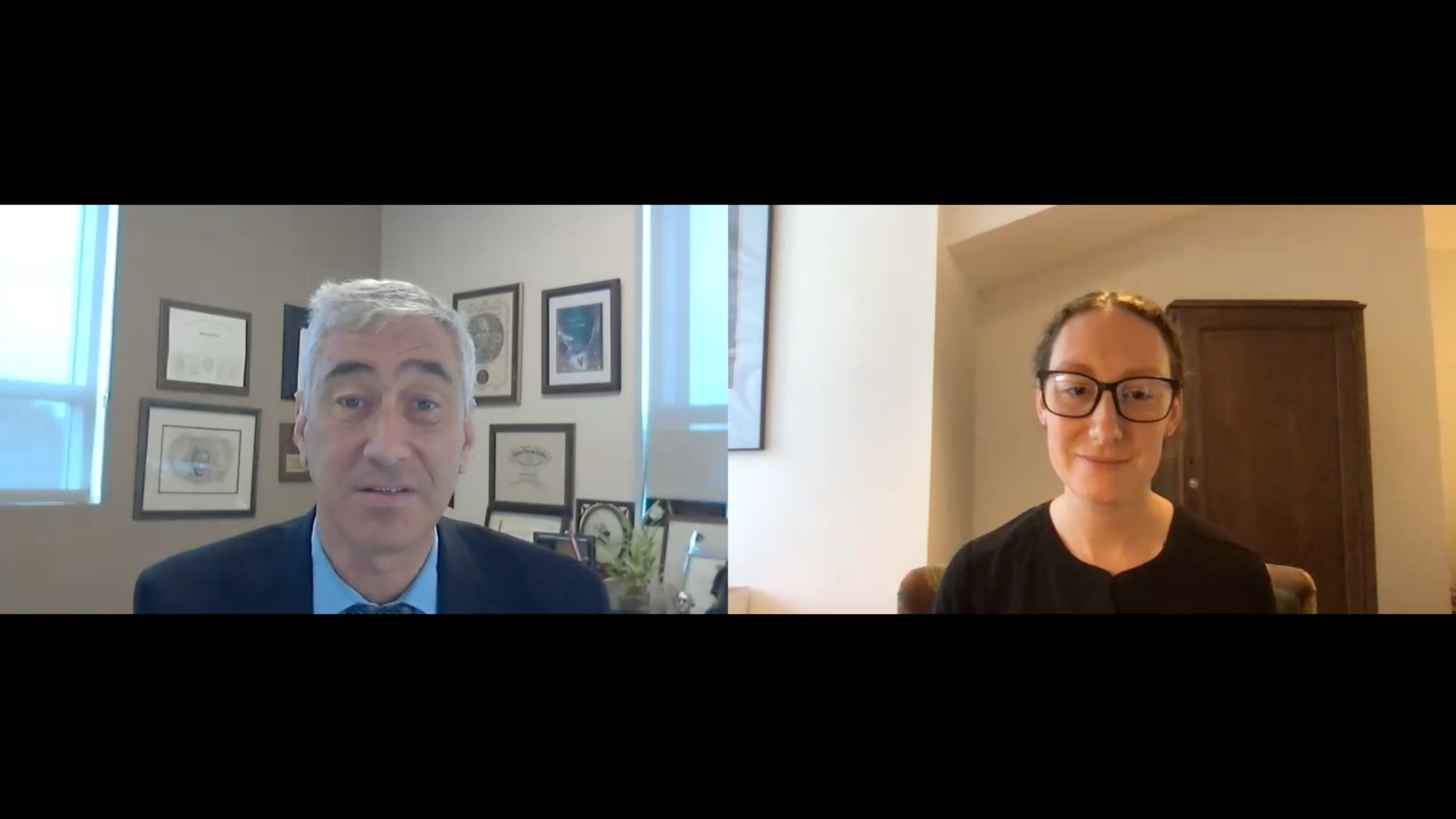#124073
Re: Farmas USA

El Dr. Matthew Budoff analiza los resultados finales de EVAPORATE
29 de agosto de 2020
Temas relevantes
A través de EVAPORATE, hemos podido demostrar a los 18 meses que los pacientes que toman icosapent etil (Vascepa) tienen menos placa y que hay cierta regresión de la aterosclerosis, lo que marca los mecanismos de beneficio para estos pacientes, dijo Matthew Budoff, MD, profesor de medicina en la Facultad de Medicina David Geffen de UCLA e investigador del Instituto Lundquist.
Jugando ahora

El Dr. Matthew Budoff analiza los resultados finales de EVAPORATE
El Dr. Matthew Budoff analiza los resultados finales de EVAPORATE
Ver serie
Episodio 1
El Dr. Matthew Budoff analiza los resultados finales de EVAPORATE
A través de EVAPORATE, hemos podido demostrar a los 18 meses que los pacientes que toman icosapent etil (Vascepa) tienen menos placa y que hay cierta regresión de la aterosclerosis, lo que marca los mecanismos de beneficio para estos pacientes, dijo Matthew Budoff, MD, profesor de medicina en la Facultad de Medicina David Geffen de UCLA e investigador del Instituto Lundquist.
Transcripción:
The American Journal of Managed Care® (AJMC®) :¿Puede presentarse y contarnos sobre su trabajo?
Dr. Budoff: My name is Matthew Budoff. I'm a professor of medicine at the David Geffen School of Medicine at UCLA, and I'm a principal investigator at the Lundquist Institute in Torrance, California.
AJMC®: After 18 months, results show icosapent ethyl (Vascepa) is capable of significantly shrinking plaque in patients with high triglycerides who were taking statins. What is the relationship between the presence of plaque and cardiovascular (CV) outcomes?
Dr. Budoff: We know that atherosclerosis, or plaque in the coronary arteries, is associated with plaque rupture and future heart attacks and strokes. So when the REDUCE-IT trial showed a 25% reduction in heart attack and stroke and cardiovascular death using icosapent ethyl, we wanted to investigate why, or by what mechanism icosapent ethyl may benefit patients. So we undertook the EVAPORATE trial.
AJMC®: Could additional mechanisms contribute to reduced CV events among patients taking icosapent ethyl? If so, do you have any indications as to which mechanisms?
Dr. Budoff: There's been a number of studies trying to look at the overall benefits of this therapy. And I do think that we've been able to demonstrate that it has some anti-inflammatory property and antioxidant property. But that really doesn't explain the robust benefits that we saw. Interestingly, while we use icosapent ethyl for patients with high triglycerides, its effect on triglyceride lowering is not the full explanation. So it's not just lowering triglycerides and lowering events. I think now through EVAPORATE we've been able to show at 18 months, that patients have less plaque, and that there's some atherosclerosis regression, or slowing of progression, that is going to be one of the mechanisms of benefit for these patients.
AJMC®: EVAPORATE only included 80 patients and was not powered for long-term outcomes. Are there plans for larger trials down the line?
Dr. Budoff: Ciertamente, este se consideró un estudio relativamente pequeño con solo 80 pacientes. Llegamos a todos nuestros puntos finales al final de los 18 meses, así que fue bueno. Tendremos una publicación simultánea con más detalles en el European Heart Journal a medida que se presente el estudio. Ojalá la gente pueda obtener un poco más de información sobre los resultados finales. Pero estoy de acuerdo contigo, necesitamos estudios más amplios. Estamos comenzando una prueba más grande ahora para observar los cambios de placa a lo largo del tiempo. Con suerte, eso nos proporcionará tanto la confirmación del primer estudio como un estudio más amplio para analizar algunos de los subgrupos: hombres frente a mujeres, diabéticos frente a no diabéticos, para tratar de averiguar exactamente quién se beneficia más y cómo. grande el beneficio realmente es.

